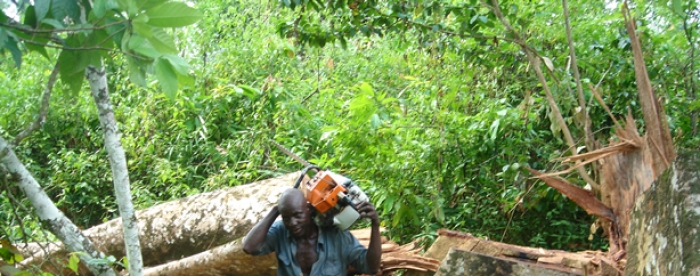The domestic timber market in Ghana is large (2.5 million m3) and will expand significantly as Ghana’s population is predicted to double by 2030 to almost 50 million. More than 700,000 livelihoods depend on this trade. Non-regulation of the domestic timber market will lead to forest degradation, loss of environmental services and rural and urban poverty, as well as jeopardizing the legal international timber trade.
The VPA, aimed at facilitating trade in legal timber and improving forest governance, has acknowledged this and has put the spotlight on the domestic market. The Netherlands is supporting VPA-implementation in Ghana through the Natural Resources and Environmental Governance (NREG) support programme, since it views legal timber trade as an important first step towards reaching sustainability. TBI is supporting the VPA through the facilitation of a multi-stakeholder dialogue on securing legal domestic lumber supply.
To address the problem effectively tough choices will have to be made, such as the adjustment of the land tenure system and the distribution of forest resources among the various actors. And further investments in the governance of the sector and in sustainable forest management are needed, through e.g. increased sector budget support, climate financing and other forms of payment for environmental services.
This story features in the Forests for People book, which has been launched by UNFF, highlighting human’s dependency on the health of forests for their physical, economic and spiritual wellbeing. Forests help stabilize the world’s climate; provide a home to many plants and animals; maintain the water cycle; protect against flood, drought, and erosion; are a source for medicines and foods; support tribal people; and are an interesting place to visit. Ghana is a good example of a country in which, if courageous measures are taken soon, future generations might continue to profit.
Link to website International Year of Forests: http://www.un.org/forests
